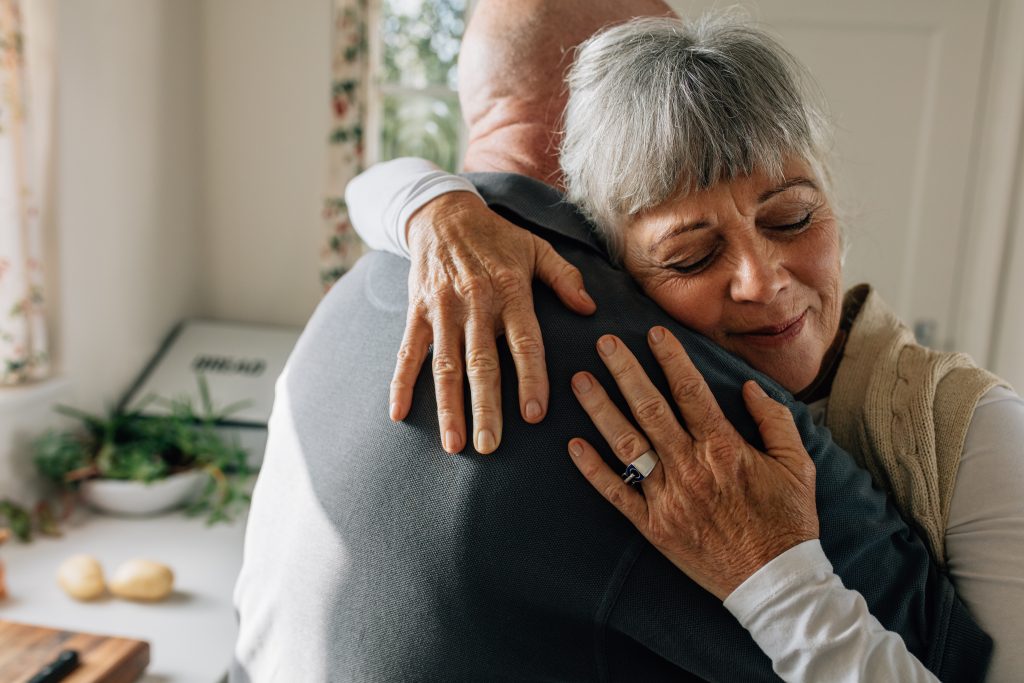Here at Tackle, we understand that everyone’s prostate cancer journey is different and that each person and their loved ones have different experiences. We’re not here to tell you how you should feel, or stare at you puzzled or blankly. We’re here to offer you the support you need, in whatever way it looks like.
We ensure that every aspect of our service is personalised to you. Whether it be through one of our 90 support groups which are dotted around the country, or our information booklets. Our team are professionals in the field and are here to answer any question you may have in a non-judgemental, inclusive environment.
With 70% of our board either tackling or having tackled prostate cancer; means that our campaigns, ways of working and big decisions have purpose, and are made by people who have personal experience of what it’s like to live with prostate cancer.
………………………
We understand that some conversations can cause embarrassment, yet we recognise that often, these are the most important ones to have. One of the reasons we’re advocates for normalising these types of conversations and tackling taboos is to ensure no-one feels like they’re on their prostate cancer journey alone.
We have over 150 Tackle Support Groups across the country, which are run by people who have been impacted by prostate cancer. Our aim is that men can access a safe and welcoming space with a chance to connect with others who are also on their prostate cancer journey. From walking and cycling activities, to having a chat over a cup of tea. Each group is guided by the members who attend to make sure it’s as personal as can be.
We know that processing and finding reliable information about prostate cancer, can be a bit of a maze. Which is why we’ve developed physical and online information booklets so you can read about prostate cancer in your own time. If you’re a family, friend or child of someone who is tackling prostate cancer, we have personal guides for you too.
Our bi-monthly e-newsletter is delivered straight to your inbox, where you can stay up to date with industry news and updates about any aspect of our service. Sign up here.
With the prostate being close to many key structures within the body, prostate cancer and its treatments can affect normal sexual functioning, urinary and bowel movements.
We understand that these disruptions can sometimes cause embarrassment, shame or anxiety. Yet we’re not here to shy away from them. In fact, we’re here to tackle them head on and start conversations to help you prepare and overcome them, one by one.
One aspect we recommend is being as communicative and pro-active as possible when talking to your healthcare team about any side affects you might be experiencing when you go through treatment. This will enable your healthcare team to help manage any side effects as early as possible and prevent any escalations which could result in complications.
After radiation therapy, urinary symptoms can often occur as it causes irritation in the muscles and nerves which control when you pee. Ask your healthcare team about what side effects could be experienced, as these can be different depending on the treatment you undergo. Drugs are often used to improve the urinary flow, and if persistent urinary incontinence is experienced then procedures might be recommended.
Depending on what side effects are experienced, pelvic floor muscle exercises, lifestyle changes and bladder retraining can be incorporated as ways to manage them [link to external website/s]. However, do speak to your healthcare team to see what’s best for you.
Prostate cancer and its treatment can sometimes affect your sex life. Being diagnosed with prostate cancer can make you feel scared, low or anxious, thus changing your feelings towards sex. This can sometimes change the way you feel towards your intimate relations, or your thoughts on starting one. With some treatments affecting the nerves and blood supply needed for an erection, can also affect the ability to have sex.
It’s important to communicate with your partner about how you’re feeling towards sex and listen to their concerns too. If you can, try and bring them to your doctor’s visits so they can be part of the conversation and it might help them understand what you’re experiencing.
If sex is a problem right now, other physical actions like cuddling, kissing and caressing can also be pleasurable and fulfil each other sexually. You could also seek a sex therapist who could help figure out any issues regarding your sex life.
Remember you are not alone in the way you’re feeling. We’ve answered some of the common sex questions we hear below:
If you have any further queries or concerns, please do speak with your loved ones if you feel comfortable, or chat with people at one of your local support groups.
With some prostate cancer treatments damaging the nerves you need to get and keep an erection, means that many men experience erectile dysfunction.
For more information about prostate cancer treatments and the side effects. Please click here.
If you’re looking for specialist advice, ask your healthcare team, GP, or nurse to refer you to your local Erectile Dysfunction Clinic. Alternatively, if you need to talk to someone about it, and don’t want to speak with a loved one, join one of our support groups.
When you have radiotherapy for prostate cancer, it can often cause bowel problems for men. This is because radiation can inflame the lining of the bowel, sometimes called proctitis. Bowel habits can differ between men. Some people find that it settles down after a few weeks of finishing treatment, however for some, it lasts longer.
The following symptoms can occur:
It’s always good to chat with your GP, healthcare team, nurse or healthcare professional if you have any queries or concerns.
If you’re gay, bisexual or have sex with men, and are the receptive partner (‘bottom’) when you have anal sex. Then bowel problems after radiotherapy could be a particular issue. For more information around this, please read the following information [link to external info].
Around 74% of men who have prostate cancer will experience severe levels of fatigue at some point. Many men feel surprised by how tired they feel and the impact this has on their lives.
Fatigue, is different from the tiredness you get from exercise, working hard or lack of sleep, as it can last for long periods of time and doesn’t go away after you’ve rested.
The reason why you can feel fatigued when having prostate cancer, is because your body is using energy to fight the disease. Hormone therapy, chemotherapy and radiotherapy also use up your energy, resulting in you feeling tired.
It’s important to keep an eye on how you feel as it can affect the way you carry out daily activities such as driving or getting dressed. It can also have further impacts on concentration levels, remembering things or understanding new information and making new decisions.
It’s important to communicate how you are feeling in relation to your fatigue levels when your body is telling you too. Pushing yourself to ‘carry on’ can sometimes have adverse effects and result in you feeling even more tired, for longer periods of time.
We’ve curated a collection of resources to help you learn more about Prostate Cancer and what you can expect through the process from diagnosis to treatment and beyond.
Learn more about the process of diagnosis and what it means for you and your loved ones


Whether you like to explore medieval castles, take long bike rides, or just listen with a cuppa and a biscuit, we have over 90 support groups around the country, to help tackle prostate cancer in ways that are best for you
Have another query? A member of our team are always here to help you and your loved ones with any questions you have regarding your prostate cancer.
Whether you’re living with prostate cancer, are connected with someone who has prostate cancer, or are community member running a Tackle support group. Sign-up to our monthly newsletter for content that’s tailored to you.
124 City Road,
London,
EC1V 2NX
Tackle Prostate Cancer is the campaign name of The National Federation of Prostate Cancer Support Groups, Registered Charity No 1163152.
A Company Limited by Guarantee. Registered in England No: 9672970
With your help we can help make a difference to the lives of thousands of men and their loved ones.
© Tackle Prostate Cancer 2022
Website by Out of Place Studio